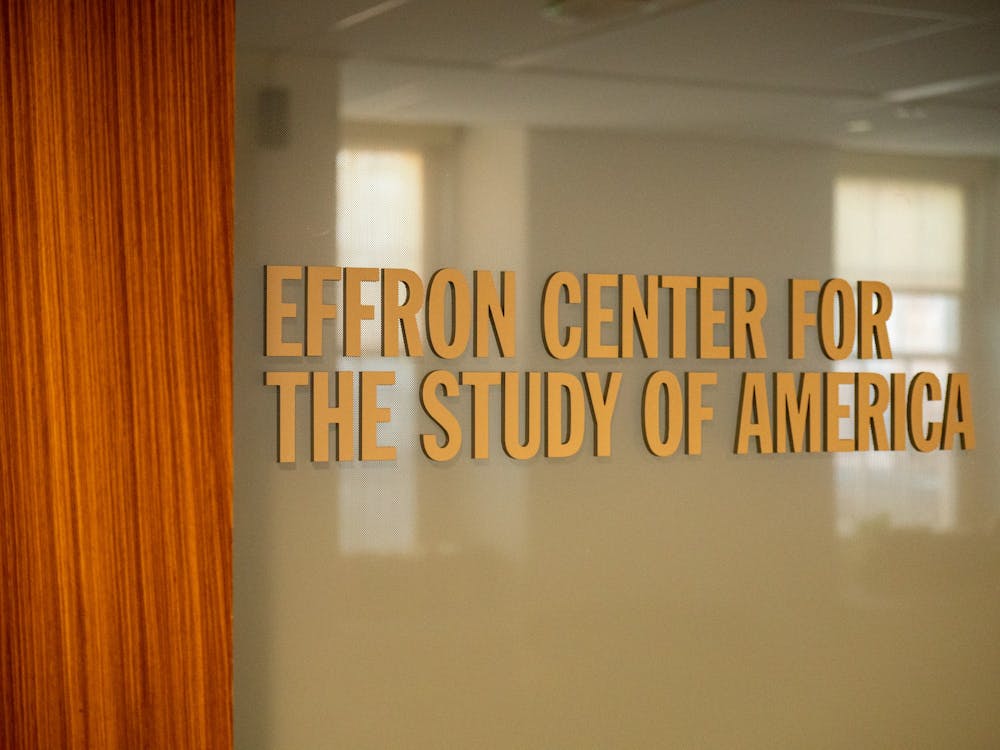Princeton’s faculty approved the introduction of a new minor in Native American and Indigenous studies (NAIS) at the faculty meeting on April 7 along with three other minors in American Studies, Entrepreneurship, and Quantitative and Computational Biology. The NAIS minor comes after years of student advocacy for Indigenous scholarship.
A dedicated faculty committee within the Effron Center for the Study of America has been actively developing the NAIS minor program for several years. Last semester, the University hired its first Professor of Indigenous Studies in Anthropology J. Kēhaulani Kauanui, who began teaching this spring. In an interview with The Daily Princetonian in April 2024, Kauanui also expressed wishes to establish a minor program for NAIS.
“I’ve only had informal involvement, but I’ve been watching and paying attention to the development of the minor for the last several years … I’m really excited to see it finally happening,” Suzanne Conklin Akbari, a professor of Medieval Studies at the Institute for Advanced Study, told the ‘Prince.’ Akbari works with Indigenous language support and local community engagement with the Lenape, which includes initiatives such as the Unami Language and History Symposium at Princeton held last week.
“The new minor would be grounded in a Native American and Indigenous studies framework that highlights Indigenous governance, histories, and cultural continuity while examining the lasting impacts of historical structures and the ongoing efforts toward self-determination,” the Effron Center’s proposal reads.
The proposal also highlights “significant student interest” in NAIS, citing consistent over-enrollment in NAIS courses and an expansion in course offerings over the past five years. Akbari commended the role of Natives at Princeton (NAP) and their alumni counterparts in calling for the establishment of the minor and “bringing about this accomplishment.”
“I see the approval of the Native American and Indigenous Studies minor as a positive and long overdue step, one that reflects the tireless advocacy of many Indigenous and non-Indigenous students over the past years who have consistently voiced the need for this academic recognition,” Gustavo Andre Blanco-Quiroga ’25, a former co-president of NAP, who has Aymara Indigenous roots, wrote in a statement to the ‘Prince.’
However, Blanco-Quiroga noted that the introduction of the minor remains “a relatively minor step” in comparison to what peer institutions have done to elevate Indigenous studies.
Until the introduction of this new minor, Princeton was among only three Ivy League institutions that did not offer a formal academic program focused on NAIS. A 2020 opinion piece in the ‘Prince’ also found that Princeton provided the least amount of academic, institutional, and social support for Indigenous students compared to peer institutions.
“Overall, I believe this is an important move Princeton is making toward being recognized as a ‘world-class institution,’ but there is still a long way to go for Princeton to meaningfully engage with and uplift global Indigenous studies as part of its academic vision,” Blanco-Quiroga wrote.
Three certificate programs were also approved to become minors: American Studies, Entrepreneurship, and Quantitative and Computational Biology. In the past few years, the University has shifted away from certificate programs and has replaced them with new minors.
The two terms are largely synonymous, and a shift towards using the word “minors” is an effort to move away from Princeton-specific terminology. During the transition, students will be able to pursue up to two minors, or a mix of minors and certificates.
Princeton’s efforts in expanding Indigenous scholarship dates back to 1970, when historians, artists, and scholars were invited by the University to its First Convocation of American Indian Scholars. “One of the things that’s really striking about Princeton, I think, is that in some ways, there’s a deep history of Indigenous Studies here,” Akbari said.

“Institutionally, it’s a very particular place, and it will be wonderful to see how [the minor] takes shape.”
Nikki Han is an assistant News editor and a contributing Features writer. She runs the Faculty, Graduate Students, and Alumni coverage area.
Sena Chang is a senior News writer for the ‘Prince.’ She typically covers campus and community activism, the state of higher education, and alumni news.
Please send any corrections to corrections[at]dailyprincetonian.com.
Correction: A previous version of this article said that Blanco-Quiroga is a current co-president of NAP. In fact, he is a former co-president.








